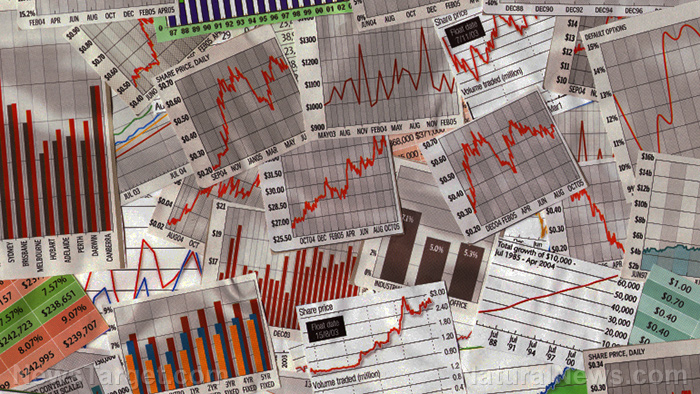by: Arsenio Toledo

(Natural News) Banks in the United States are sitting on a time bomb of unrealized losses totaling around $1.7 trillion.
This is according to a study released on March 13 by the New York University Stern School of Business (NYU Stern) that took a closer look at the unrealized losses banks in the U.S. were likely holding. The study found that banks had a total of $1.7 trillion in unrealized losses as of December 2022. (Related: IMF head warns: Risks to stability of global financial system have increased after recent upheavals across banking sector.)
Unrealized losses are “paper” losses that result from banks holding on to assets that have decreased in value but they have not yet sold, which is what turns those assets into realized losses.
The unrealized losses of U.S. banks were nearly equal to the banks’ total equity of $2.1 trillion. Philip Schnabel and Alexi Savov from NYU Stern, along with Itamar Dreschler of the University of Pennsylvania, noted that the value of banks’ assets may have diminished by about 10 percent over the past year due to rising interest rates slashing the value of U.S. Treasuries and mortgage-backed securities, which make up a large portion of many banks’ assets.
They and other financial experts warn that the recent declines in values of bank assets have very significantly increased the fragility of the American banking system, and even small fire sales of asset holdings put more banks at risk.
“As long as people aren’t all coming in at the same time demanding their deposits back, you’re okay,” said Stephan Weiler of Colorado State University. But he added that the risk of this happening is rising as more Americans grow wary of keeping their assets in banks, especially following the collapse of major banks like Silicon Valley Bank.
“So, the chances of facing those unrealized losses are going up,” warned Weiler, who noted that this could lead to more bank runs, which could turn into a downward spiral for America’s banks.
Risk of total bank collapse rising as depositors take out more of their money from US banks
During the week ending on March 22, depositors took out $126 billion from U.S. banks, according to data from the Federal Reserve. Much of the outflow came from the nation’s largest banking institutions.
Around $90 billion of the $126 billion in cash depositors took out came from the biggest 25 banks in the United States. Smaller banks, which suffered massive withdrawals the week following the collapse of SVB and Signature Bank, have become more stable, with Fed data showing that they actually gained back around $6 billion in deposits on a seasonally adjusted basis.
But despite this small bright spot, total industry deposits have still fallen to $17.3 trillion, down 4.4 percent from the same week a year ago. This is also the lowest level of total deposits since July 2021.
Analysts note that deposits have been declining at all banks for the first two months of the year, well before SVB’s failure. Bank deposits were also down five percent annually during the fourth quarter of 2022.
“If our banking system can’t find a way to turn things around, our entire economy will soon be in a world of hurt,” wrote Michael Snyder for The Economic Collapse Blog. “When banks get into trouble, they start getting really tight with their money. That means fewer mortgages, fewer commercial real estate loans, fewer auto loans and fewer credit cards being issued. So it should greatly concern all of us that U.S. banks are bleeding deposits at an absolutely staggering pace right now.”
Learn more about the state of the banking sector in the United States at MoneySupply.news.
Watch this episode of the “Brighteon Broadcast News” discussing how banks will start limiting withdrawals to stop bank runs caused by “customer behavior.”